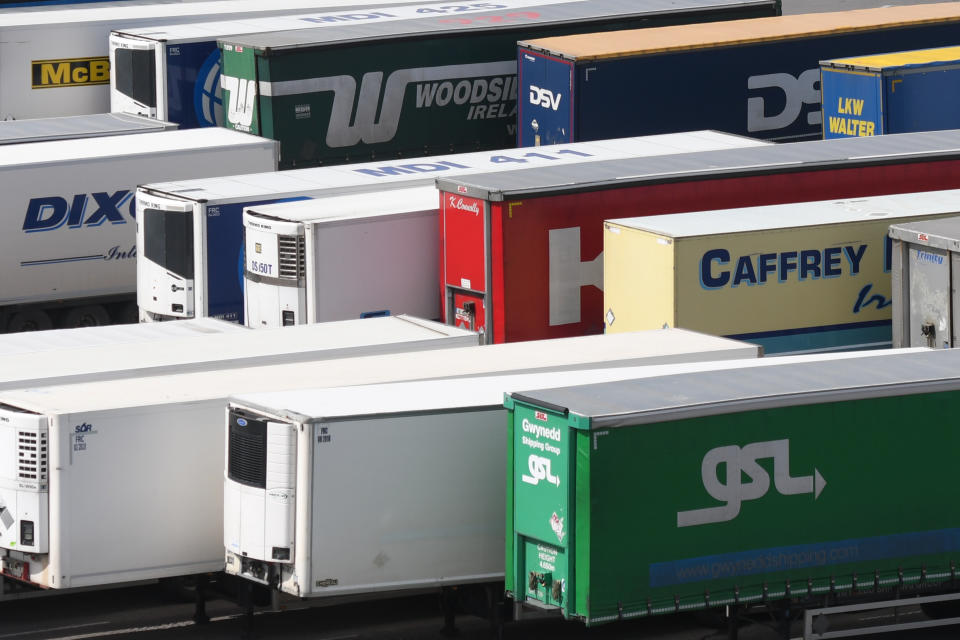How no-deal Brexit crate shortages could cripple UK food and drink firms

Many UK food and drink exporters are unaware they could be crippled by a shortage of suitable pallets and crates under a no-deal Brexit, a leading trade body has warned.
Séamus Nevin, chief economist at manufacturers’ group Make UK, said that the “overwhelming majority” of wooden pallets currently in use would fall foul of new checks likely to be imposed on British goods.
Price hikes or even shortages could occur as firms rush to buy the right packaging, while trucks carrying food, drink and other common products in unsuitable packaging could be turned away by EU officials.
All wooden packaging carrying goods from outside the EU must be heat-treated or fumigated and certified before they can enter Europe, under global trade rules designed to stop the spread of plant pests.
READ MORE: ‘Preparing for crisis’: ex-HMRC border chief on no-deal Brexit
The stricter rules are not applied to trade between EU member states. Many UK pallets and crates are therefore not ready for the new rules if Britain leaves without a deal that keeps’ current arrangements intact.
One pallet maker has previously said the UK lacks the capacity to make all packaging compliant at short notice, making delays, cancellations and cost increases likely.
Nevin said on a Brexit briefing call with manufacturers: “Fewer than a third of pallets used in the UK currently comply with the packaging rules.
“If pallets are prevented from entry as they don’t pass those checks, those goods will not be able to be distributed.”
He told Yahoo Finance UK: “Wooden pallets are the norm for most small imported and exported goods so this could be a significant issue if firms can't source compliant pallets or other alternatives.
“The lack of awareness of this issue will be crucial to determining its impact. At the moment many businesses are unaware that this could be an issue so do not yet realise they need to prepare.”

READ MORE: Liam Fox attacks ‘black propaganda’ of bad news over Brexit
He said Make UK had not received any updates from the department for the environment, farming and rural affairs (Defra) since January on contingency plans.
UK officials reportedly held talks with distributors earlier this year, after releasing guidance late last year on the regulations, known as the international standard for phytosanitary measures 15 (ISPM15).
The UK government could also be expected to impose the same checks on packaging carrying EU food and drink into Britain, but may choose not to do so to prevent huge disruption to supply chains.
UK manufacturer Shaw Pallet said on its website in the run-up to the previous March Brexit deadline that it feared an “over-zealous inspection regime” on the other side of the Channel.
It too warned a “huge proportion” of UK pool pallets were not compliant, with growing evidence of firms trying to organise heat treatment for millions of timber pallets at short notice.
But Shaw Pallet said the capacity for treatment on such a scale “does not exist” either in Britain or the EU, and said there was “little doubt” it couild mean “delivery delays, unavailability and cost increases.”

 Yahoo News
Yahoo News 
